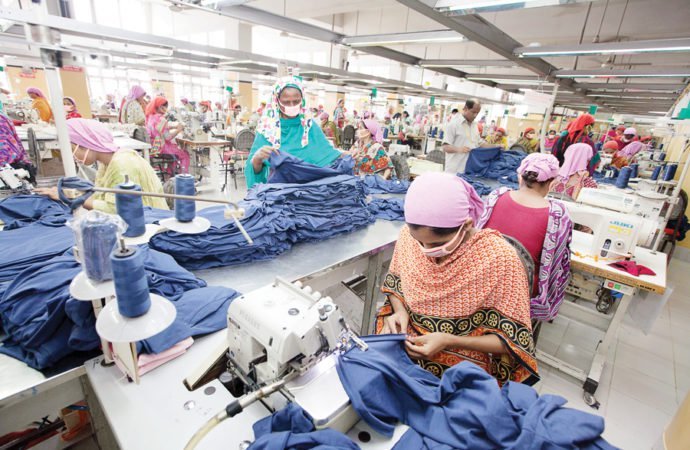"Bangladesh’s competitiveness in global woven garment exports is under threat owing to increased dependence on fabrics import and a lack of proper policy on energy supply. As per Export Promotion Bureau (EPB), export earnings from woven garments saw a 2.35 per cent decline in the last fiscal to $14.39 billion. Export earnings from woven garment products recorded a 2.35 per cent decline in the last fiscal year to $14.39 billion. On the other hand, it posted 4 per cent growth in the first half of the current fiscal to $7.17 billion."

Bangladesh’s competitiveness in global woven garment exports is under threat owing to increased dependence on fabrics import and a lack of proper policy on energy supply. As per Export Promotion Bureau (EPB), export earnings from woven garments saw a 2.35 per cent decline in the last fiscal to $14.39 billion. Export earnings from woven garment products recorded a 2.35 per cent decline in the last fiscal year to $14.39 billion. On the other hand, it posted 4 per cent growth in the first half of the current fiscal to $7.17 billion. During the same period, knitwear products earning increased by 11.47 per cent to $7.6 billion. Longer lead time, poor backward linkage, absence of value addition & modern technology and lack of proper policy support on gas and electricity connection are some of the concerns plaguing the industry.

The woven sector has also witnessed negative growth in major export destinations including Germany and the US, two of the largest export destinations. In order to revive the industry, investments in backward linkage would greatly reduce import dependence and technology upgradation for value addition. Faruque Hassan, Senior-VP, BGMEA says, Bangladesh is doing better in knit products exports. This is because of a strong backward linkage industry. However, woven products manufacturers are highly dependent on import for fabrics, which costs more. As a result, export earnings from woven goods have seen slower growth and it is losing its strength in the global market. On the other hand, value addition of woven products is less than the knit products which led to lower prices. The country doesn’t have manmade fibre, polyester and petrochemical strength. They can be competitive if they can meet the demand from the local sources. Stakeholders are investing to upgrade machinery to go value addition. This will boost the buyers’ confidence and they will place orders for higher end woven products in Bangladesh.
The bug bears
Shorter lead time is key to remaining competitive in the global market. And to achieve this, Bangladesh has to improve its backward linkage industry to meet the demands locally. It takes about 35 days to ship goods to the US from Bangladesh. But shipping from China takes 20 days and it is 15 days for Turkey, points out Abdus Salam Murshedy, President, Exporters Association of Bangladesh. As a result, Bangladesh cannot take urgent orders from buyers due to longer lead time.
While getting a gas connection is a big challenge, business will not be viable if manufacturers have to run a factory with diesel instead of gas. Murshedy added that only using gas can make the production less expensive, which will help the industry be competitive. The other challenges include the size of investment and costs of land. Setting up woven fabric factories cost two to three times more than establishing a knit composite factory. It also needs more land.
Way forward
There lies a huge demand-supply gap as Bangladesh can only meet 30-35 per cent of local demand of woven fabrics. Murshedy suggests the industry first needs to meet demands locally to reduce lead time as it takes so many days to import fabrics. For this, new investment is a must to increase production capacity in line with the demands. Then, the government should ensure infrastructure to ship finished goods within a possible shorter time as it is the key to success to grab more orders and remain competitive in the global market. Md Mostafiz Uddin, MD, Denim Expert, said since fashion trends are changing every day and the consumers want latest fashion products, clothing retailers are looking for more technical fabrics instead of basic ones. To cope with latest demand, the industry should focus on multifunctional fabrics to diversify products. Deploying technology and increasing R&D efforts would go a long way in gaining growth.












